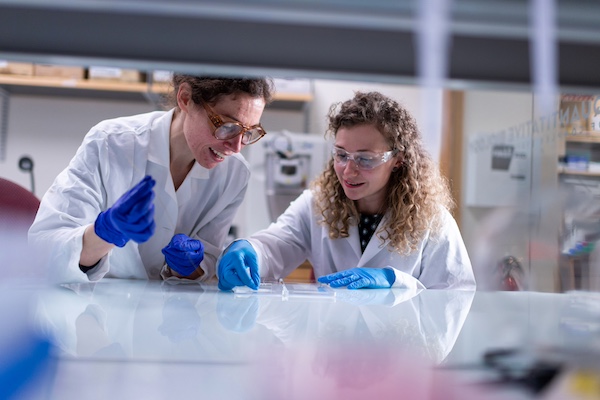Durant is director of the Massachusetts Institute of Technology (MIT) Museum, where he began in 2005 after decades of leadership at major British science museums. This summer, Durant joined the scientific advisory board of the Morgridge Institute for Research, where he will give guidance to an outreach program that attracts more than 30,000 people annually to the Discovery Building.
Author: Brian Mattmiller
Jing Fan joins Morgridge Institute metabolism theme
Can we fight cancer by targeting its metabolism, essentially starving tumors of the nutrients they need to survive? It’s one of the intriguing big-picture questions in the research field of Jing Fan, a new investigator in the Morgridge Institute for Research metabolism theme.
Madison College students think outside the shell in stem cell project
Since chick embryos lack a developed immune system, scientists are able to engraft other types of cells — including mouse and human cells — into the friendly 3D confines of the embryo and study their behavior. Under the right conditions, the introduced cells can thrive.
NIH leader headlines summit on big data and health
Phillip Bourne, who since 2014 has served as the NIH’s first associate director for data science, will give the keynote address June 30 at the annual research retreat for Wisconsin’s own big-data center, called the Center for Predictive Computational Phenotyping (CPCP).
Regeneration pioneer to join Morgridge Institute, UW–Madison faculty
Phil Newmark, a developmental biologist studying the mysteries of how the body regenerates damaged tissue, will join the Morgridge Institute for Research and the University of Wisconsin–Madison Department of Zoology
